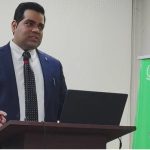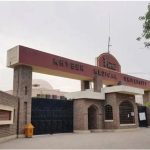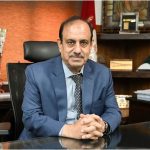Islamabad : Dr. Athar Mahboob, Vice-Chancellor, Islamia University, Bahawalpur, has said that the major problem that exists in Pakistan is that vice-chancellors are highly powerful and the rest of the syndicate lacks such powers.
Dr. Mahboob was addressing the ‘International Conference on contemporary issues and challenges of whistle-blowing in higher education institutions (HEIs),’ organised here by Sustainable Development Policy Institute (SDPI).
Prof Mahboob said that we need to come up with a mechanism where whistle-blowers can report matters and get protection under the law of the land, he added.
Dr. Razia Sultana, Vice-Chancellor, Shaheed Benazir Bhutto Women University, Peshawar, said that no mechanism exists in our institutions to provide support to whistle-blowers. She suggested that this discussion should be taken to Parliament as well keeping in view its importance for bringing improvement to higher education institutions.
Dr Fatima Dar from Iqra University, Karachi, said that social integrity in HEIs must be upheld by everyone. She added that there should be a proper mechanism in place at the institutions to ensure accountability. Whistle-blowing here plays an important role to resolve various issues.
Dr Sajida Naureen from Sardar Bahadar Khan Women University, Balochistan, opined that despite several challenges, her institution is playing a vital role in imparting higher education to women in Balochistan. She said that whistle-blowers in our environment are prone to various difficulties and thus, there should be a mechanism to protect those who dare to speak the truth.
Dr. Abid Qaiyum Suleri, Executive Director, SDPI, emphasised that whistle-blowing is a means to reach our end goal of SDGs, especially pertaining to the goal of leaving no one behind. “Through digital technology and digital governance, we can improve our system of complaint management and transparency,” he said adding that we need to ensure a fair chance to everyone in Higher Education Institutions. Dr. Suleri further said that whistle-blowers could play an important role to inform us about unethical practices in higher education institutions. However, the principle of “until proven guilty,” must be strictly adhered to.
Dr. Irene Bregenzer from the University of Vienna, observed we need to take the issue holistically and keep habits, visions, and values in consideration.
Former Managing Director of Higher Education Commission, Islamabad, Dr. Nadia Tahir, informed the participants that a bill was passed in Pakistan for Whistle Blowing but unfortunately, it only covers financial malpractices. Thus, other unethical practices in universities still remain unattended. She asserted that we need a mechanism in place to highlight unethical practices in academia.
Dr. Saleem Mazhar, Vice-Chancellor, University of Sargodha, was of the opinion that universities in Pakistan with limited resources are doing a very good job. Dr. Mian Ghulam Yasin, Dean of the University of Sargodha, added that we are still not enough prepared to address the issues & challenges related to whistle-blowing. Dr. Nargis Abbas from the University of Sargodha opined that whistle-blowing aspiration depends upon the accessibility to the channel of communication in an organisation.







